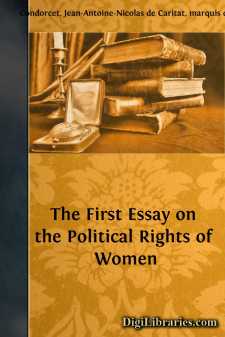Categories
- Antiques & Collectibles 13
- Architecture 36
- Art 48
- Bibles 22
- Biography & Autobiography 813
- Body, Mind & Spirit 142
- Business & Economics 28
- Children's Books 13
- Children's Fiction 10
- Computers 4
- Cooking 94
- Crafts & Hobbies 4
- Drama 346
- Education 46
- Family & Relationships 57
- Fiction 11828
- Games 19
- Gardening 17
- Health & Fitness 34
- History 1377
- House & Home 1
- Humor 147
- Juvenile Fiction 1873
- Juvenile Nonfiction 202
- Language Arts & Disciplines 88
- Law 16
- Literary Collections 686
- Literary Criticism 179
- Mathematics 13
- Medical 41
- Music 40
- Nature 179
- Non-Classifiable 1768
- Performing Arts 7
- Periodicals 1453
- Philosophy 64
- Photography 2
- Poetry 896
- Political Science 203
- Psychology 42
- Reference 154
- Religion 513
- Science 126
- Self-Help 84
- Social Science 81
- Sports & Recreation 34
- Study Aids 3
- Technology & Engineering 59
- Transportation 23
- Travel 463
- True Crime 29
Sort by:
CHAPTER I. WHAT IS THE HUMAN AURA? The above question is frequently asked the student of occultism by some one who has heard the term but who is unfamiliar with its meaning. Simple as the question may seem, it is by no means easy to answer it, plainly and clearly in a few words, unless the hearer already has a general acquaintance with the subject of occult science. Let us commence at the beginning,...
more...
by:
Tom Beecham
George Harrison noticed the flashing red light on the instrument panel as he turned onto the bridge to Balboa Island. Just over the bridge, he pulled the car to the curb and flipped the switch with violence. "Harrison," he muttered. "How's the water, fella?" asked the voice of Bob Mills, his assistant. There was a beautiful moon over the island. The surf lapped at the tiers of the...
more...
AN OLD SWEETHEART OF MINE As one who cons at evening o'er an album all alone,And muses on the faces of the friends that he has known,So I turn the leaves of fancy till, in shadowy design,I find the smiling features of an old sweetheart of mine. The lamplight seems to glimmer with a flicker of surprise,As I turn it low to rest me of the dazzle in my eyes,And light my pipe in silence, save a sigh...
more...
More than one hundred years have passed away since, in 1789, the Marquis de Condorcet wrote his “Esquisse sur l’Admission des Femmes au Droit de Cité,” and yet the problem of women’s enfranchisement still awaits an equitable solution. Those of us who are old enough to remember the inauguration of the popular movement for the extension of the franchise to women (which may be dated from the day...
more...
by:
John Galsworthy
ACT I The SCENE is the pretty drawing-room of a flat. There are twodoors, one open into the hall, the other shut and curtained.Through a large bay window, the curtains of which are not yetdrawn, the towers of Westminster can be seen darkening in asummer sunset; a grand piano stands across one corner. Theman-servant PAYNTER, clean-shaven and discreet, is arranging twotables for Bridge. BURNEY, the maid,...
more...
by:
Joseph Conrad
CHAPTER I. “Kaspar! Makan!” The well-known shrill voice startled Almayer from his dream of splendid future into the unpleasant realities of the present hour. An unpleasant voice too. He had heard it for many years, and with every year he liked it less. No matter; there would be an end to all this soon. He shuffled uneasily, but took no further notice of the call. Leaning with both his...
more...
This tale makes no claim to the character of an exhaustive illustration of all that belongs to the art of diving. It merely deals with the most important points, and some of the most interesting incidents connected therewith. In writing it I have sought carefully to exhibit the true and to ignore the false or improbable. I have to acknowledge myself indebted to the well-known submarine engineers Messrs...
more...
by:
Avery Hopwood
CHAPTER ONE "You've got to get him, boys—get him or bust!" said a tired police chief, pounding a heavy fist on a table. The detectives he bellowed the words at looked at the floor. They had done their best and failed. Failure meant "resignation" for the police chief, return to the hated work of pounding the pavements for them—they knew it, and, knowing it, could summon no...
more...
PREFACE Every man who writes about himself is, on the face of the matter, obnoxious to the suspicion which haunts the daily pathway of the Bore. To talk of self and not be offensive demands an art which is not always given to man. And yet we are always longing to get near each other and to understand each other; and in default of a closer communion with our living fellows we take to our bosoms the...
more...
The sun was shining again after squalls, and the strait showed violet, green, red, and bronze lines, melting and intermingling each changing second. Metallic lustres shone as if some volcanic fountain on the lake-bed were spraying the surface. Jules McCarty stood at his gate, noting this change in the weather with one eye. He was a small, old man, having the appearance of a mummied boy. His cheek-bones...
more...











